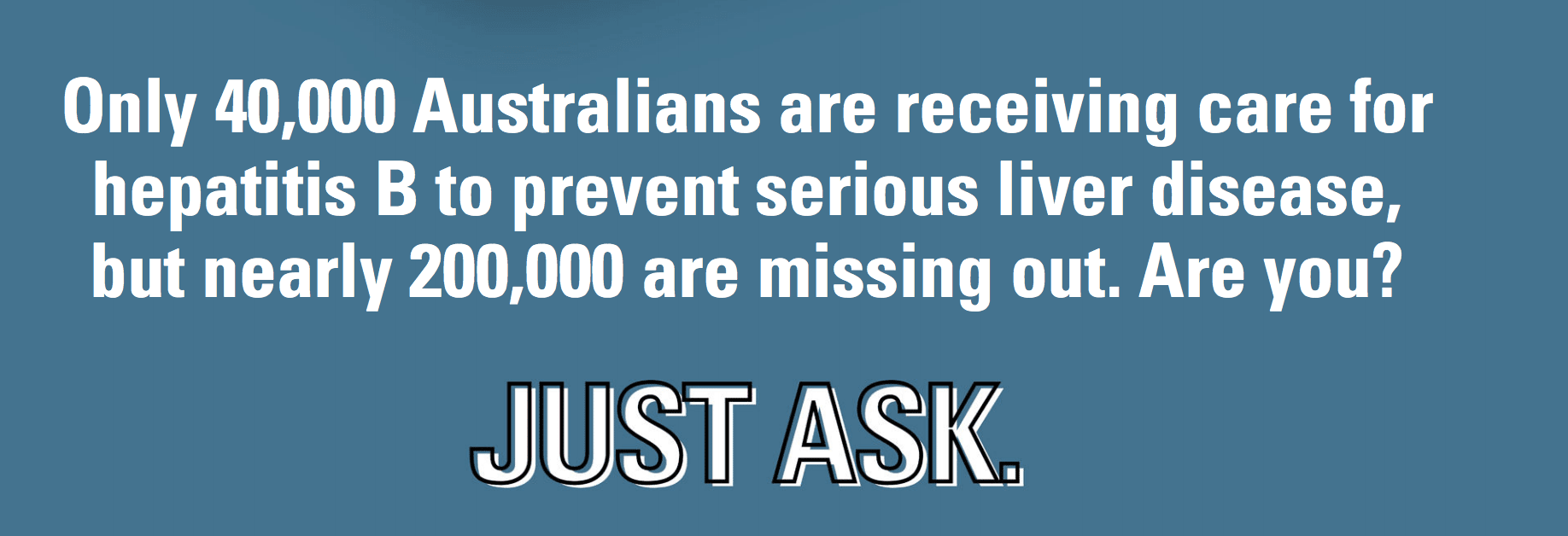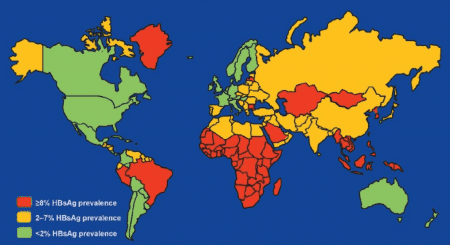Hepatitis remains highly undiagnosed in Australia

Author: Dr Jeffrey Wang MBBS, FRACGP, HBV S100 Prescriber

28 July is the world Hepatitis day
It is a timely reminder that worldwide viral hepatitis is responsible for 1.3 million deaths each year. It is such a burden on health resource that the World Health Organisation has aimed to eliminate Hepatitis B and C by 2030. In Australia, we have an estimated 230,000 chronic Hepatitis B and 200,000 chronic Hepatitis C sufferers. However, thousands of people in Australia have not yet been diagnosed.
There are five types of viral hepatitis – A, B, C, D and E.
- Hepatitis A and E are contracted through ingestion of contaminated food or water. They often resolve by themselves.
- Hepatitis B and C are contracted through exchange of bodily fluid (blood, semen) during events such as unprotected sex, intravenous drug use, tattoo and piercing.
- Hepatitis D is an uncommon infection that require concurrent Hepatitis B infection.
Symptoms of acute hepatitis may include lethargy, loss of appetite, jaundice (yellow discolouration of skin), joint pain and abdominal pain. After the acute phase, Hepatitis B and C virus can continue to cause liver inflammation without any noticeable symptoms. Eventually they can lead to liver scarring and liver cancer.
It is therefore important to be aware of your risk profile and attend for appropriate screening.
Australasian Society for HIV, Viral Hepatitis and Sexual Health Medicine (ASHM) has recommended potential Hepatitis B screening for the following groups:
- People born in intermediate and high prevalence countries (see chart below1)
- Aboriginal and Torres Strait Islander
- All patients prior to undergoing chemotherapy or immunosuppressive therapy
- Unvaccinated adults at higher risk of infection such as household and sexual contacts of people with chronic hepatitis B, past history of injected drug use, and men who have sex with men.
1http://testingportal.ashm.org.au/hbv
Screening is done through specific blood tests.
It is important to know that once diagnosis of chronic Hepatitis B is made, regular monitoring is essential to determine if treatment is required. There have been significant advances in antiviral treatment agents such as Tenofovir and Entecavir. They are very effective at withhold disease progression and have minimal side effects.
For Hepatitis C, ASHM recommends potential screening for people with the following risk factors:
- History of injected drug use
- History of incarceration
- Recipients of organ or blood products before February 1990 in Australia
- Tattoos or skin piercings
- Born in countries with high Hepatitis C prevalence (Africa, the Mediterranean, Eastern Europe, South Asia, and the Middle East – in particular Egypt)
- Aboriginal and Torres Strait Islander
Again there have been significant advances in Hepatitis C treatment and we have been looking at cure rate of >90% when treated early.
For further information, please refer to two very useful websites:
So please spread the word and arrange a time to see your friendly GP if you have any questions!




